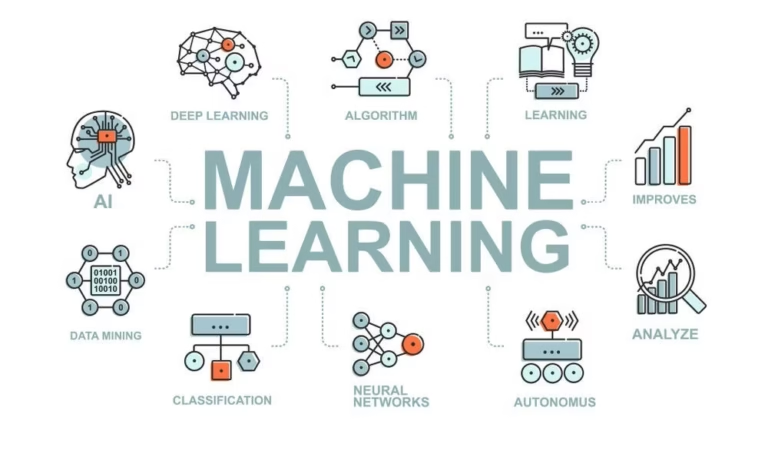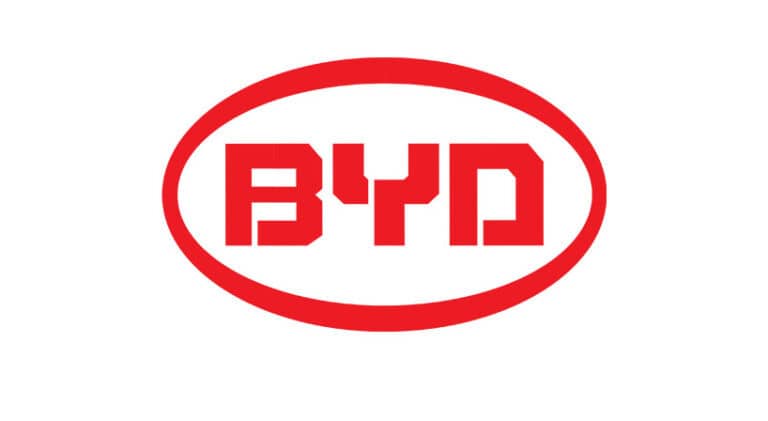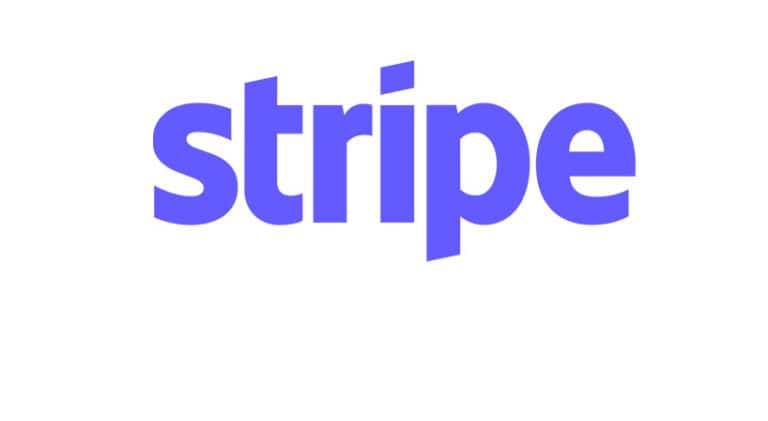1. Introduction
Landing a Machine Learning (ML) role at a top tech company like FAANG (Facebook/Meta, Apple, Amazon, Netflix, Google), Tesla, or OpenAI is the ultimate dream for many software engineers and data scientists. These ML roles at FAANG and beyond are at the forefront of innovation, working on cutting-edge technologies that shape the future—from self-driving cars and personalized recommendations to artificial general intelligence (AGI). But let’s be honest: getting your foot in the door isn’t easy. The competition is fierce, the interviews are grueling, and the expectations are sky-high.
That’s where this guide comes in. Whether you’re a seasoned ML engineer or a fresh graduate looking to break into the field, this blog is your one-stop resource for understanding the various ML roles at these companies, the skills you need to succeed, and how to ace the interview process. Plus, we’ll show you how InterviewNode can be your secret weapon in landing your dream job.
So, grab a cup of coffee, sit back, and let’s dive into the ultimate guide to ML roles at FAANG, Tesla, and OpenAI.
2. Overview of ML Roles in Top Tech Companies
What is Machine Learning (ML)?
Before we dive into the roles, let’s take a step back and understand what Machine Learning is all about. At its core, ML is a subset of artificial intelligence (AI) that enables systems to learn from data and improve over time without being explicitly programmed. From recommending your next Netflix binge to powering Tesla’s Autopilot, ML is everywhere.
But ML isn’t just about algorithms and models. It’s about solving real-world problems—whether it’s improving healthcare, optimizing supply chains, or creating smarter virtual assistants. That’s why ML roles are so diverse and in such high demand.
Types of ML Roles
ML roles can vary widely depending on the company and the specific team you’re working with. Here’s a quick overview of the most common ML roles you’ll find at FAANG, Tesla, and OpenAI:
Machine Learning Engineer (MLE): These are the builders. They take research models and turn them into scalable, production-ready systems. If you love coding and solving engineering challenges, this role is for you.
Research Scientist: These are the innovators. They focus on advancing the state-of-the-art in ML by publishing papers, experimenting with new algorithms, and solving open-ended problems.
Data Scientist: These are the storytellers. They analyze data, build predictive models, and provide insights that drive business decisions.
Applied Scientist: A hybrid role that combines research and engineering. Applied Scientists work on real-world problems but often contribute to research as well.
Computer Vision Engineer: Specializing in image and video processing, these engineers work on tasks like object detection, facial recognition, and autonomous driving.
Natural Language Processing (NLP) Engineer: Focused on text and language, these engineers work on tasks like sentiment analysis, machine translation, and chatbots.
In the next sections, we’ll take a deep dive into the specific ML roles at each of these companies, what they entail, and how you can prepare for the interviews.
3. Deep Dive into ML Roles at FAANG
Google (Alphabet)
Google is synonymous with innovation, and its ML teams are no exception. From improving search algorithms to developing cutting-edge AI models, Google offers a wide range of ML roles.
ML Engineer at Google:
Responsibilities: Building and deploying ML models, optimizing algorithms for scalability, and collaborating with cross-functional teams.
Skills Required: Strong coding skills (Python, C++), experience with TensorFlow or PyTorch, and a solid understanding of algorithms.
Typical Projects: Improving Google Search, YouTube recommendations, and Google Assistant.
Research Scientist at Google:
Responsibilities: Conducting original research, publishing papers, and collaborating with academia.
Skills Required: A strong background in math and statistics, experience with ML research, and a PhD is often preferred.
Typical Projects: Advancing NLP, computer vision, and reinforcement learning.
Data Scientist at Google:
Responsibilities: Analyzing data, building predictive models, and providing insights to drive business decisions.
Skills Required: Strong analytical skills, experience with SQL and data visualization tools, and a solid understanding of ML.
Typical Projects: Optimizing ad targeting, improving user engagement, and analyzing A/B test results.
Interview Process at Google:
What to Expect: Coding rounds, system design interviews, and behavioral questions.
How to Prepare: Practice coding problems on platforms like LeetCode, review system design concepts, and be ready to discuss your past projects in detail.
Amazon
Amazon is a powerhouse in e-commerce, cloud computing, and AI-driven innovation. Their ML teams work on everything from personalized recommendations to voice-activated assistants like Alexa. Let’s break down the key ML roles at Amazon:
Applied Scientist at Amazon
Responsibilities: Applied Scientists at Amazon bridge the gap between research and product development. They work on real-world problems, applying ML techniques to improve customer experiences, optimize logistics, and enhance AWS services.
Skills Required: Strong programming skills (Python, Java), expertise in ML algorithms, and experience with large-scale data processing.
Typical Projects: Improving product recommendations, optimizing supply chain logistics, and enhancing Alexa’s natural language understanding.
Why It’s Exciting: You get to work on problems that impact millions of customers while contributing to cutting-edge research.
ML Engineer at Amazon
Responsibilities: ML Engineers at Amazon focus on building scalable ML systems. They take research models and deploy them into production, ensuring they can handle Amazon’s massive scale.
Skills Required: Proficiency in ML frameworks (TensorFlow, PyTorch), experience with distributed systems, and strong software engineering skills.
Typical Projects: Building recommendation engines, fraud detection systems, and predictive analytics for AWS.
Why It’s Exciting: You’ll work on systems that process billions of requests daily, making a tangible impact on Amazon’s operations.
Data Scientist at Amazon
Responsibilities: Data Scientists at Amazon analyze vast amounts of data to uncover insights that drive business decisions. They build predictive models, run experiments, and collaborate with product teams.
Skills Required: Strong analytical skills, expertise in SQL and data visualization tools, and a solid understanding of ML.
Typical Projects: Optimizing ad targeting, improving customer retention, and analyzing A/B test results.
Why It’s Exciting: You’ll work on data-driven solutions that directly influence Amazon’s strategy and growth.
Interview Process at Amazon
What to Expect: Amazon’s interview process typically includes coding rounds, system design interviews, and behavioral questions (based on their Leadership Principles).
How to Prepare: Practice coding problems on platforms like LeetCode, review system design concepts, and familiarize yourself with Amazon’s Leadership Principles.
Pro Tip: Be ready to discuss how you’ve demonstrated leadership and customer obsession in your past roles.
Apple
Apple is known for its sleek products and seamless user experiences, but behind the scenes, ML plays a crucial role in powering features like Siri, Face ID, and personalized recommendations. Let’s explore the ML roles at Apple:
ML Engineer at Apple
Responsibilities: ML Engineers at Apple work on integrating ML models into products like Siri, Photos, and the App Store. They focus on optimizing models for performance and efficiency.
Skills Required: Strong coding skills (Python, Swift), experience with ML frameworks, and a deep understanding of algorithms.
Typical Projects: Improving Siri’s speech recognition, enhancing Face ID’s accuracy, and personalizing App Store recommendations.
Why It’s Exciting: You’ll work on products used by millions of people worldwide, with a focus on privacy and user experience.
Research Scientist at Apple
Responsibilities: Research Scientists at Apple focus on advancing the state-of-the-art in ML. They work on long-term projects that could shape the future of Apple’s products.
Skills Required: A strong background in math and statistics, experience with ML research, and often a PhD.
Typical Projects: Developing new algorithms for computer vision, NLP, and reinforcement learning.
Why It’s Exciting: You’ll work on groundbreaking research that could redefine how we interact with technology.
Data Scientist at Apple
Responsibilities: Data Scientists at Apple analyze user data to improve products and services. They build predictive models, run experiments, and provide insights to product teams.
Skills Required: Strong analytical skills, expertise in SQL and data visualization tools, and a solid understanding of ML.
Typical Projects: Optimizing battery life, improving user engagement, and analyzing customer feedback.
Why It’s Exciting: You’ll work on data-driven solutions that enhance the user experience for millions of Apple customers.
Interview Process at Apple
What to Expect: Apple’s interview process includes coding rounds, system design interviews, and behavioral questions. They also focus on your ability to think creatively and solve problems.
How to Prepare: Practice coding problems, review system design concepts, and be ready to discuss your past projects in detail.
Pro Tip: Apple values creativity and innovation, so be prepared to think outside the box during your interviews.
Meta (Facebook)
Meta (formerly Facebook) is a leader in social media, virtual reality, and AI research. Their ML teams work on everything from content recommendation to AR/VR experiences. Let’s dive into the ML roles at Meta:
Research Scientist at Meta
Responsibilities: Research Scientists at Meta focus on advancing the state-of-the-art in ML. They publish papers, experiment with new algorithms, and collaborate with academia.
Skills Required: A strong background in math and statistics, experience with ML research, and often a PhD.
Typical Projects: Improving content recommendation algorithms, advancing AR/VR technologies, and developing new NLP models.
Why It’s Exciting: You’ll work on research that impacts billions of users and shapes the future of social media and virtual reality.
ML Engineer at Meta
Responsibilities: ML Engineers at Meta build and deploy ML models that power products like Facebook, Instagram, and WhatsApp. They focus on scalability, performance, and user experience.
Skills Required: Proficiency in ML frameworks (PyTorch is widely used at Meta), experience with distributed systems, and strong software engineering skills.
Typical Projects: Building recommendation systems, improving ad targeting, and enhancing content moderation.
Why It’s Exciting: You’ll work on systems that process massive amounts of data in real-time, impacting billions of users.
Data Scientist at Meta
Responsibilities: Data Scientists at Meta analyze user data to uncover insights that drive product decisions. They build predictive models, run experiments, and collaborate with product teams.
Skills Required: Strong analytical skills, expertise in SQL and data visualization tools, and a solid understanding of ML.
Typical Projects: Optimizing user engagement, improving ad performance, and analyzing A/B test results.
Why It’s Exciting: You’ll work on data-driven solutions that shape the future of social media and virtual reality.
Interview Process at Meta
What to Expect: Meta’s interview process includes coding rounds, system design interviews, and behavioral questions. They also focus on your ability to think critically and solve problems.
How to Prepare: Practice coding problems, review system design concepts, and be ready to discuss your past projects in detail.
Pro Tip: Meta values impact and collaboration, so be prepared to discuss how you’ve worked in teams to achieve results.
Netflix
Netflix is a leader in entertainment and personalization, and ML plays a key role in delivering the perfect binge-watching experience. Let’s explore the ML roles at Netflix:
ML Engineer at Netflix
Responsibilities: ML Engineers at Netflix focus on building recommendation systems, optimizing streaming quality, and personalizing user experiences.
Skills Required: Strong coding skills (Python, Java), experience with ML frameworks, and a deep understanding of algorithms.
Typical Projects: Improving content recommendations, optimizing video encoding, and enhancing search functionality.
Why It’s Exciting: You’ll work on systems that impact how millions of people discover and enjoy content.
Research Scientist at Netflix
Responsibilities: Research Scientists at Netflix focus on advancing the state-of-the-art in ML. They work on long-term projects that could shape the future of entertainment.
Skills Required: A strong background in math and statistics, experience with ML research, and often a PhD.
Typical Projects: Developing new algorithms for content recommendation, improving streaming quality, and exploring new ways to personalize user experiences.
Why It’s Exciting: You’ll work on research that redefines how people consume entertainment.
Data Scientist at Netflix
Responsibilities: Data Scientists at Netflix analyze user data to uncover insights that drive content strategy and user engagement.
Skills Required: Strong analytical skills, expertise in SQL and data visualization tools, and a solid understanding of ML.
Typical Projects: Optimizing content recommendations, improving user retention, and analyzing viewing patterns.
Why It’s Exciting: You’ll work on data-driven solutions that shape the future of entertainment.
Interview Process at Netflix
What to Expect: Netflix’s interview process includes coding rounds, system design interviews, and behavioral questions. They also focus on your ability to think creatively and solve problems.
How to Prepare: Practice coding problems, review system design concepts, and be ready to discuss your past projects in detail.
Pro Tip: Netflix values innovation and impact, so be prepared to showcase how you’ve driven results in your past roles.
Tesla
Tesla is synonymous with innovation in electric vehicles, renewable energy, and autonomous driving. Their ML teams work on some of the most exciting challenges in AI, from self-driving cars to robotics. Let’s break down the key ML roles at Tesla:
Autopilot Engineer at Tesla
Responsibilities: Autopilot Engineers at Tesla work on developing and improving the self-driving capabilities of Tesla vehicles. They focus on perception, planning, and control systems.
Skills Required: Strong programming skills (Python, C++), expertise in computer vision and deep learning, and experience with robotics.
Typical Projects: Improving object detection, enhancing path planning algorithms, and optimizing real-time decision-making.
Why It’s Exciting: You’ll work on technology that’s revolutionizing transportation and making self-driving cars a reality.
Computer Vision Engineer at Tesla
Responsibilities: Computer Vision Engineers at Tesla focus on developing algorithms for image and video processing. They work on tasks like object detection, lane detection, and facial recognition.
Skills Required: Strong background in computer vision, experience with deep learning frameworks (TensorFlow, PyTorch), and proficiency in Python or C++.
Typical Projects: Enhancing Tesla’s Autopilot system, improving camera-based perception, and developing new vision-based features.
Why It’s Exciting: You’ll work on cutting-edge technology that’s critical to Tesla’s mission of autonomous driving.
Data Scientist at Tesla
Responsibilities: Data Scientists at Tesla analyze data from vehicles, manufacturing processes, and energy products to uncover insights and improve performance.
Skills Required: Strong analytical skills, expertise in SQL and data visualization tools, and a solid understanding of ML.
Typical Projects: Optimizing battery performance, improving manufacturing efficiency, and analyzing vehicle telemetry data.
Why It’s Exciting: You’ll work on data-driven solutions that impact Tesla’s products and operations on a global scale.
Interview Process at Tesla
What to Expect: Tesla’s interview process includes coding rounds, technical interviews focused on ML and computer vision, and behavioral questions.
How to Prepare: Practice coding problems, review ML and computer vision concepts, and be ready to discuss your past projects in detail.
Pro Tip: Tesla values innovation and problem-solving, so be prepared to showcase how you’ve tackled challenging technical problems.
OpenAI
OpenAI is at the forefront of AI research, working on everything from natural language processing to reinforcement learning. Their mission is to ensure that artificial general intelligence (AGI) benefits all of humanity. Let’s explore the ML roles at OpenAI:
Research Scientist at OpenAI
Responsibilities: Research Scientists at OpenAI focus on advancing the state-of-the-art in AI. They publish papers, experiment with new algorithms, and collaborate with academia.
Skills Required: A strong background in math and statistics, experience with ML research, and often a PhD.
Typical Projects: Developing new NLP models (like GPT), advancing reinforcement learning, and exploring AGI.
Why It’s Exciting: You’ll work on research that could redefine the future of AI and its impact on society.
ML Engineer at OpenAI
Responsibilities: ML Engineers at OpenAI focus on implementing state-of-the-art models and scaling them for real-world applications.
Skills Required: Strong programming skills (Python, C++), expertise in ML frameworks (TensorFlow, PyTorch), and experience with distributed systems.
Typical Projects: Building scalable ML systems, optimizing model training, and deploying models for production use.
Why It’s Exciting: You’ll work on cutting-edge technology that’s shaping the future of AI.
Data Scientist at OpenAI
Responsibilities: Data Scientists at OpenAI analyze data to improve model performance and uncover insights that drive research and development.
Skills Required: Strong analytical skills, expertise in SQL and data visualization tools, and a solid understanding of ML.
Typical Projects: Optimizing model training data, analyzing model performance, and improving data pipelines.
Why It’s Exciting: You’ll work on data-driven solutions that impact the development of state-of-the-art AI models.
Interview Process at OpenAI
What to Expect: OpenAI’s interview process includes coding rounds, technical interviews focused on ML and AI, and behavioral questions.
How to Prepare: Practice coding problems, review ML and AI concepts, and be ready to discuss your past projects in detail.
Pro Tip: OpenAI values creativity and a deep understanding of AI, so be prepared to showcase your passion for the field.
6. Skills Required for ML Roles
Now that we’ve explored the various ML roles at FAANG, Tesla, and OpenAI, let’s talk about the skills you’ll need to succeed in these roles. Whether you’re aiming to be an ML Engineer, Research Scientist, or Data Scientist, here’s a breakdown of the key skills:
Technical Skills
Programming Languages: Python is the go-to language for ML, but familiarity with C++, Java, or R can also be beneficial.
ML Frameworks: TensorFlow, PyTorch, and Scikit-learn are widely used in the industry.
Algorithms and Data Structures: A strong understanding of algorithms and data structures is essential for coding interviews and real-world problem-solving.
Big Data Tools: Experience with tools like Hadoop, Spark, and SQL is often required for handling large datasets.
Mathematical Foundations
Linear Algebra: Essential for understanding ML models and algorithms.
Probability and Statistics: Crucial for data analysis, hypothesis testing, and model evaluation.
Calculus: Important for understanding optimization algorithms and gradient-based methods.
Domain Knowledge
Industry-Specific Knowledge: Depending on the company, you may need to understand specific domains like autonomous vehicles (Tesla), social media (Meta), or entertainment (Netflix).
ML Specializations: Familiarity with areas like computer vision, NLP, or reinforcement learning can give you an edge.
Soft Skills
Communication: The ability to explain complex concepts to non-technical stakeholders is crucial.
Teamwork: ML projects often involve cross-functional collaboration, so strong teamwork skills are essential.
Problem-Solving: ML roles require creative thinking and the ability to tackle open-ended problems.
7. How to Prepare for ML Interviews
Preparing for ML interviews at top companies can be daunting, but with the right strategy, you can ace them. Here’s a step-by-step guide:
Understanding the Interview Process
Coding Rounds: These test your ability to solve algorithmic problems and write clean, efficient code.
System Design Interviews: These assess your ability to design scalable ML systems.
Behavioral Interviews: These evaluate your soft skills and cultural fit.
Research Presentations: For research roles, you may be asked to present your past work or solve a research problem on the spot.
Resources for Preparation
Books: “Cracking the Coding Interview” by Gayle Laakmann McDowell, “Hands-On Machine Learning with Scikit-Learn, Keras, and TensorFlow” by Aurélien Géron.
Online Courses: Coursera’s ML courses, Fast.ai, and DeepLearning.ai.
Practice Platforms: LeetCode, Kaggle, and HackerRank.
Mock Interviews
Why They Matter: Mock interviews help you simulate the real interview experience and identify areas for improvement.
How InterviewNode Can Help: InterviewNode offers personalized mock interviews with experienced interviewers who provide detailed feedback and actionable tips.
Common Mistakes to Avoid
Neglecting the Basics: Don’t focus so much on advanced topics that you forget the fundamentals.
Overlooking Soft Skills: Communication and teamwork are just as important as technical skills.
Not Practicing Enough: Consistent practice is key to building confidence and improving performance.
8. How InterviewNode Can Help You Land Your Dream ML Role
Landing an ML role at FAANG, Tesla, or OpenAI is no small feat. The competition is fierce, and the interview process is designed to test not just your technical skills but also your problem-solving abilities, creativity, and cultural fit. That’s where InterviewNode comes in. We’re here to help you navigate the complexities of ML interviews and give you the best shot at landing your dream job.
Personalized Coaching
What We Offer: At InterviewNode, we understand that every candidate is unique. That’s why we offer personalized coaching tailored to your specific goals, whether you’re aiming for an ML Engineer role at Google or a Research Scientist position at OpenAI.
How It Helps: Our experienced coaches work with you to identify your strengths and weaknesses, create a customized study plan, and provide one-on-one guidance throughout your preparation journey.
Mock Interviews
What We Offer: We provide realistic mock interviews that simulate the actual interview experience at top companies. Our interviewers are industry experts who have been through the process themselves.
How It Helps: Mock interviews help you build confidence, improve your problem-solving skills, and get detailed feedback on your performance. You’ll learn how to articulate your thoughts clearly, handle pressure, and avoid common pitfalls.
Resource Library
What We Offer: Access to a curated library of resources, including coding problems, system design templates, ML concepts, and interview tips.
How It Helps: Our resource library saves you time by providing everything you need in one place. Whether you’re brushing up on algorithms or diving deep into ML frameworks, we’ve got you covered.
Success Stories
What We Offer: Real-life success stories from candidates who landed ML roles at FAANG, Tesla, and OpenAI with the help of InterviewNode.
How It Helps: These stories inspire and motivate you, showing that with the right preparation and mindset, you can achieve your goals too.
Why Choose InterviewNode?
Expertise: Our team consists of industry veterans who know what it takes to succeed in ML interviews.
Personalization: We tailor our coaching and resources to your specific needs and goals.
Proven Results: Our candidates have gone on to secure roles at some of the most prestigious companies in the world.
9. Conclusion
Landing an ML role at FAANG, Tesla, or OpenAI is a challenging but achievable goal. These companies are at the forefront of innovation, and working there means you’ll be solving some of the most exciting problems in tech. But to get there, you need to master the technical skills, understand the interview process, and prepare strategically.
This guide has walked you through the various ML roles at these companies, the skills you need to succeed, and how to prepare for the interviews. Remember, the journey may be tough, but with the right preparation and mindset, you can make it happen.
And don’t forget, InterviewNode is here to help you every step of the way. From personalized coaching to mock interviews and curated resources, we’ve got everything you need to ace your ML interviews and land your dream job.
10. FAQs
1. What is the difference between an ML Engineer and a Data Scientist?
ML Engineer: Focuses on building and deploying ML models into production. Requires strong software engineering skills and expertise in ML frameworks.
Data Scientist: Focuses on analyzing data, building predictive models, and providing insights. Requires strong analytical skills and expertise in data visualization tools.
2. How important is a PhD for ML roles at OpenAI?
While a PhD is not always required, it is highly valued for research roles at OpenAI. A strong research background and publications in top conferences can give you a competitive edge.
3. What are the most common interview questions for ML roles at FAANG?
Common questions include coding problems (e.g., implement a neural network), system design questions (e.g., design a recommendation system), and behavioral questions (e.g., describe a challenging project you worked on).
4. How can I improve my coding skills for ML interviews?
Practice coding problems on platforms like LeetCode, participate in coding competitions, and work on real-world ML projects to build your skills.
5. What is the role of system design in ML interviews?
System design interviews assess your ability to design scalable and efficient ML systems. You’ll be asked to design systems like recommendation engines, fraud detection systems, or real-time prediction pipelines.
6. How can InterviewNode help me prepare for ML interviews?
InterviewNode offers personalized coaching, mock interviews, and a curated resource library to help you prepare for ML interviews. Our experienced coaches provide detailed feedback and actionable tips to improve your performance.
Final Thoughts
The journey to landing an ML role at a top company is challenging, but it’s also incredibly rewarding. With the right preparation, resources, and mindset, you can turn your dream into reality. And remember, you don’t have to do it alone—InterviewNode is here to support you every step of the way.
So, start your preparation today, stay focused, and keep pushing forward. Your dream ML role is within reach!






